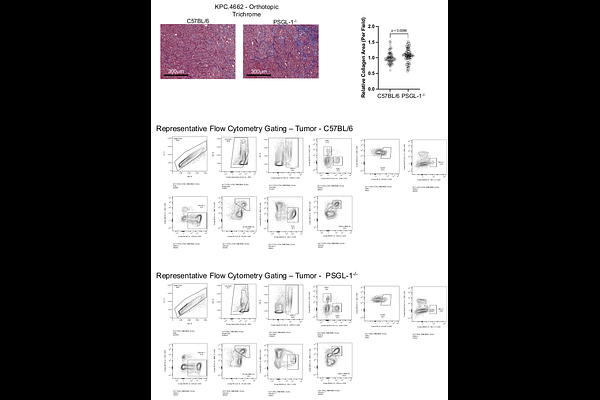Disabling PSGL-1 abrogates immune suppression and resistance to PD-1 blockade in pancreatic cancer

Disabling PSGL-1 abrogates immune suppression and resistance to PD-1 blockade in pancreatic cancer
Hope, J. L.; Zhang, Y.; Hetrick, H. A. F.; Sanchez-Hernandez, E. S.; Silvestri, B.; Smith, B. J.; Nakil, S. H.; Roy, S.; Lin, M.; Palete, A. B.; Maganti, S.; Ling, L.; Otero, D. C.; Byrne, K.; Romano, G.; Wang, Y. X.; Commisso, C.; Bradley, L. M.
AbstractPancreatic ductal adenocarcinoma (PDAC) is a lethal cancer for which there is a critical need to identify novel therapeutic targets. Herein we define PSGL-1 as a checkpoint inhibitor using a syngeneic orthotopic model of PDAC. As with PDAC patients, CD8+ T cells within murine PDAC tumors expressed high levels of PSGL-1. PSGL-1-/- mice displayed striking T cell-dependent control of primary tumors and lung metastases. Extensive spatial remodeling of the PDAC microenvironment occurred in PSGL-1-/- mice with a dramatic loss of proliferating tumor cells and an increase in CD8+ T cell interaction with antigen-presenting cells. The prominent CD8+ T cell infiltrates included subsets of pre-exhausted T cells retaining hallmarks of stemness and multifunctional effector capacity. These changes enabled a near complete response of PDAC to therapeutic PD-1 blockade. Our findings identify PSGL-1 as a key regulator of anti-tumor immunity in PDAC, highlighting its potential as a therapeutic target to limit CD8+ T cell exhaustion and enhance immunotherapy response.